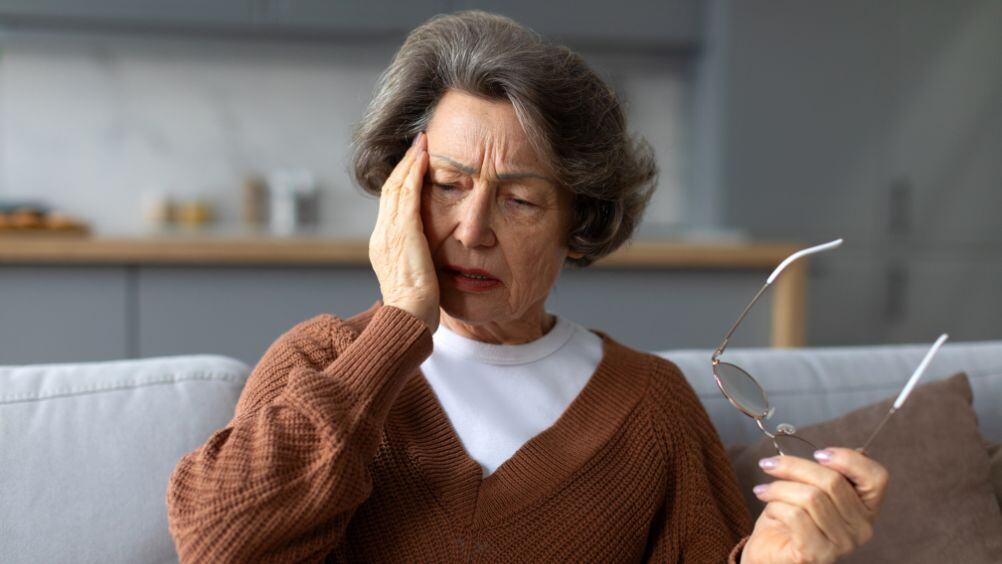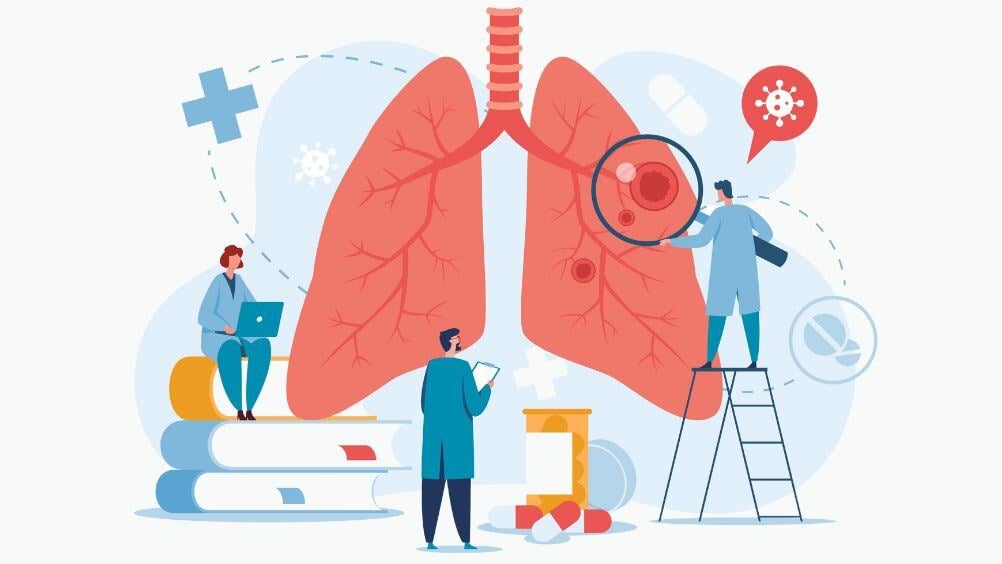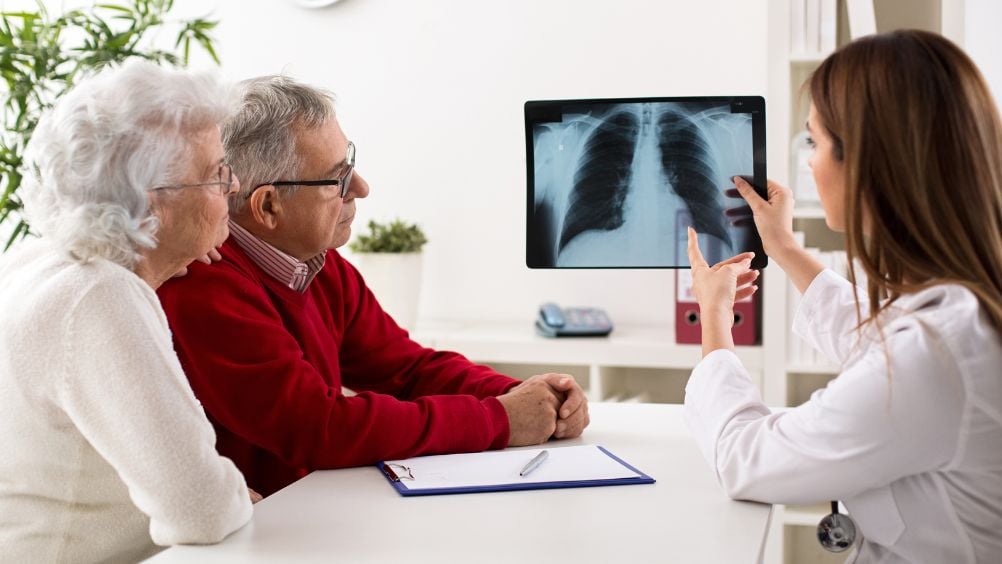Successfully finishing lung cancer treatment is a huge milestone that should be celebrated. You’re likely relieved that cancer treatment is over and looking forward to spending more time at home or work. At the same time, it’s normal to have concerns about lung cancer returning. Your oncologists did all they could through the treatment plan to keep your cancer from recurring. But in some cases, it does come back.
What is Lung Cancer Recurrence?
Recurrent lung cancer is lung cancer that has returned after treatment. When cancer goes into remission, there are no detectable signs of cancer. However, cancer cells in the body can remain inactive and undetectable for months or years before growing again.
While some patients never have a recurrence of lung cancer, others could experience a recurrence after several months or even after several years. The type of lung cancer and the stage when you were diagnosed are some of the factors that influence the likelihood of recurrence.
- Patients who received a diagnosis of non-small cell lung cancer (NSCLC) are less likely to recur than those with small cell lung cancer (SCLC).
- Small cell lung cancer, especially extensive stage SCLC, is likely to recur in about 90% of patients within the first two years after treatment.
- If non-small cell lung cancer recurs, it’s usually within five years after the initial treatments.
- The stage of non-small cell lung cancer at diagnosis also impacts the likelihood that it will recur:
- Stage I NSCLC: Recurrences occur in 5%–19% of patients
- Stage II NSCLC: Recurrence rates range from 11% to 27%
- Stage III NSCLC: Recurrences occur in 24–40% of patients
Types of Lung Cancer Recurrence and Their Prognosis
Lung cancer can recur in three primary ways. The classification depends on where the lung cancer returns.
- A local recurrence occurs when cancer has returned near its original site.
- A regional recurrence occurs when the cancer returns in the surrounding tissues or lymph nodes of the initial cancer.
- A distant recurrence of lung cancer occurs when the disease has spread to a region other than the original site, such as the liver, brain, adrenal glands, or bones.
If your lung cancer returns, your oncologist will determine which of these groups you fall into. A new round of tests, similar to the ones used for diagnosis, is needed to determine this. If the recurrence of lung cancer is found when it’s local, fewer treatments may be necessary, and the likelihood of remission is higher than when it’s found in distant areas of the body.
Can You Lower the Risk of Lung Cancer Recurrence?
While there’s nothing you can do to guarantee that cancer won’t return, you can make choices that lower the likelihood of its return.
Lifestyle Changes
There are lifestyle choices you can make that can help lower the likelihood of lung cancer recurring. The number one most impactful change is to stop all tobacco use. It’s so important that you quit smoking that you shouldn’t try to do it alone. Talk with the doctor about it to get the support you need.
You can also try to reduce exposure to substances such as diesel exhaust, tar, soot, and radon gas.
If possible, try to stay active and take deep breaths daily.
Go to Your Follow-up Appointments
You must stay on track with your follow-up appointments – even if you feel fine. During these appointments, your lung cancer doctor will carefully monitor any changes through blood tests for tumor markers and imaging tests to look for any signs of cancer returning. The goal is to find the cancer as soon as possible if it recurs.
Signs to Look for When Lung Cancer Recurs
When it comes to identifying changes, you can be your doctor's most reliable source of information. Although routine oncology visits are crucial, you should contact your oncologist right away if you experience any of the following symptoms in between appointments:
- Chronic cough
- Coughing up blood
- Dizziness and visual disturbances
- Breathing problems, such as wheezing and shortness of breath
- Unexpected weight loss
- Persistent exhaustion
You may also notice some less typical signs of lung cancer. While not every patient with a recurrence of lung cancer will experience the same symptoms, patients with a lung cancer recurrence report some issues that seem unrelated to the lungs. That’s because cancer may have developed in other areas of the body, such as the brain, liver, or bones.
- Confusion
- Lack of coordination or balance problems
- Abdominal pain or digestive issues
- Eye problems
- Bone pain
- Blood clots
- Headaches
- Jaundice or yellowing of the skin and eyes
Recurrent lung cancer symptoms vary depending on where the cancer has returned. For instance, poor coordination and disorientation may arise from lung cancer that has progressed to the brain, but jaundice may be the result of lung cancer spreading to the liver. While something other than cancer could be causing these symptoms, report them to your oncologist so they can run tests to see if the cancer has recurred.
Read more about the symptoms of lung cancer.
Treatment Options for Lung Cancer Recurrence
The WVCI lung cancer care team evaluates your unique situation to make treatment recommendations based on your condition.
Treatments for lung cancer recurrence may include:
- Targeted therapy is a relatively new category of treatment available to recurrent non-small cell lung cancer patients. Your lung cancer specialist may run biomarker testing (genomic testing) on the tissue collected to confirm the recurrent cancer diagnosis. The tests look for specific genetic mutations that can cause lung cancer to grow. Specific targeted therapy drugs are available to patients for some common genetic mutations. Learn about new technologies in targeted therapy for advanced NSCLC treatment in our blog.
- Chemotherapy is a standard treatment method for lung cancer recurrence. Because recurrent lung cancer can mutate and respond differently, your lung cancer specialist may recommend a different chemotherapy drug.
- Radiation therapy reduces the size of tumors developed in other areas of the body when lung cancer returns. It may also be used to relieve symptoms caused by cancer (palliative radiation therapy). The use of radiation therapy in the chest area for recurrent cancer will depend on how much was used, if any, during the initial treatment process. Read more in our blog about how radiation therapy is used to treat lung cancer.
- Surgery is not a standard treatment method for recurrent lung cancer. However, it can be used if it’s a localized recurrence.
Related blog: Lung Cancer Research and Its Impact on Treatment Options and Outcomes
Recurrent Lung Cancer Treatment in the Willamette Valley
The lung cancer specialists at Willamette Valley Cancer Institute offer the latest in lung cancer treatment and are here to provide you with an individualized treatment plan. If you are diagnosed with lung cancer or recurrent lung cancer, you can schedule an appointment with one of our oncologists at a location convenient to you in Albany, Corvallis, Eugene, Florence, Lincoln City, or Newport, Oregon.



